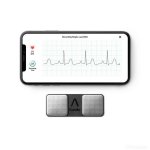Sorry to hear this Doc.
Perhaps obviously the level of AF dictates the type of treatment. As you'll no doubt know it's caused by rogue nerves in the left top chamber of the heart making the heart muscle flutter very quickly instead of the correct deep normal beats. Your tired because the heart isn't delivering the required amount of oxygen when it's fluttering. Beta blockers help to control the fluttering and anit coagulants prevent the blood from being flicked around the chamber and potentially leading to clots forming.
The idea of the electric shocks is to calm the rogue nerves down, and is quite successful, it does stop the condition getting worse in lots of patients, bit you know all this. If the AF gets to a stage where these treatments are not helping anymore, the next, and final step is an ablation, which Ronk an I have had. Depending on how severe and how long you've had the condition depends on the type of ablation they use. Ronk had the normal one, which uses a hot tip inserted in the groin, up into the right ventrical and then pushed into the left one to burn through the rogue nerves, with scar tissue forming creating a physical block. Mine was mis diagnosed for years so I had to have cryoablation, which uses a freezing cold tip to burn instead of a hot tip, which unfortunately paralysed my right phrenic nerve and left me on permanent oxygen for 2 years, but don't worry, it sounds like you're in early stages so you'd have a hot tip ablation if needed and you can't paralyse the nerve with that, and it's about a one in 10,000 chance of a paralysis an only with cryoablation.
I can't offer any help with the electric shock treatment as I didn't have it, but it's apparently very good and not too painful. I've rambled on as IRD said any info might be useful too. It's not nice having it as you'll both know. As far as I know the docs will try to keep it under control with beta blockers as an ablation is a pretty expensive op, but if it's really starting to have a major impact on your life and funds are available an ablation is a very successful treatment, not always permanent, but often is, and it does cancel the fluttering full stop. It can come back of course, but you can have up to 6 ablations.
Best of luck both of you.

 Not able to help myself but hope someone else has some info for you .
Not able to help myself but hope someone else has some info for you . 